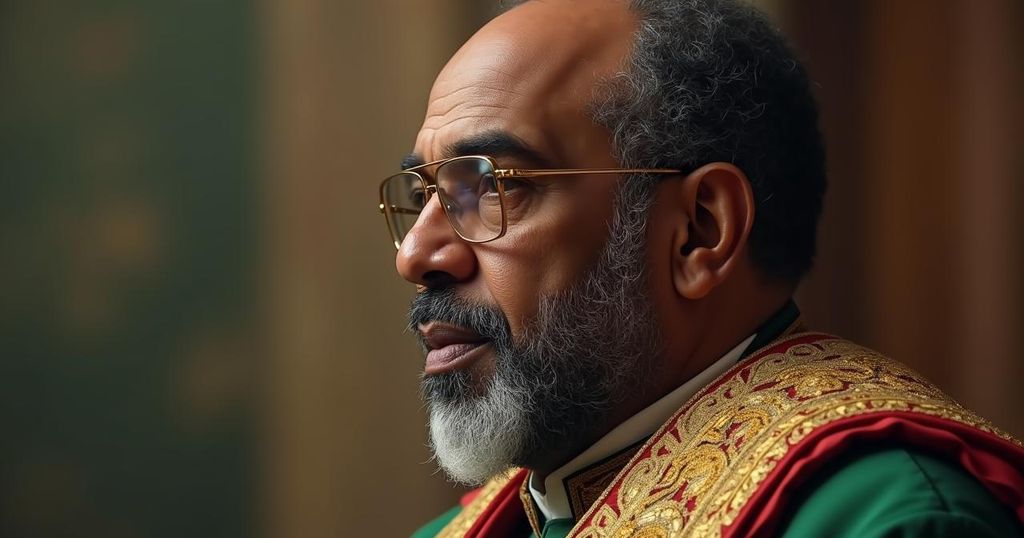Omar al-Bashir: A Historical Overview of His Presidency and Downfall

Omar al-Bashir, born January 7, 1944, was a Sudanese military officer who led a coup in 1989 and served as president until 2019. His reign was marked by military control, civil conflict, particularly in Darfur, and international charges of war crimes. Following widespread protests, he was ousted in a military coup and faces various legal charges related to his governance.
Omar Hassan Ahmad al-Bashir, born on January 7, 1944, in Hosh Wad Banaqa, Sudan, is a prominent Sudanese military officer and political figure who led a coup d’état to overthrow the elected government in Sudan in 1989. He served as president from 1993 until his ousting in 2019. Following his military education in Cairo, Bashir gained rapid rank within the Sudanese Army, notably spearheading military efforts against rebel forces in southern Sudan during the 1980s. In 1989, frustrated by the existing leadership, he led a coup that resulted in the establishment of the Revolutionary Command Council for National Salvation, which dissolved parliament, prohibited political parties, and imposed strict media controls. Alongside his ally, Hasan al-Turabi, Bashir introduced Islamic law in 1991, exacerbating tensions between the predominantly Muslim north and the animist and Christian south. Bashir was appointed president in 1993 and subsequently confirmed by election in 1996; he maintained military control and further centralized power. Despite his initial adherence to a peace process with southern rebels leading to the 2005 agreement, extended conflict in Darfur prompted severe humanitarian crises, marked by widespread displacement and international condemnation of Bashir’s administration for alleged war crimes against humanity. In 2009, he became the first sitting head of state to be indicted by the International Criminal Court on charges of war crimes and genocide. Despite this, he remained in power and was reelected in 2015 amid allegations of electoral fraud and oppression of dissent. However, escalating public unrest in late 2018, rooted in economic grievances, culminated in widespread protests leading to his removal by military coup in April 2019. After his ousting, he faced multiple legal challenges, including corruption and involvement in the deaths of protesters, and was sentenced to time in a reform facility. Efforts to hold him accountable for past actions remain a contentious issue as Sudan navigates its transition away from Bashir’s lengthy and controversial rule.
Omar al-Bashir stands as a pivotal figure in Sudanese history, known for his military authority and controversial political reign. His presidency, which lasted more than three decades, was characterized by significant internal strife, including civil wars, accusations of human rights violations, particularly in Darfur, and a tumultuous relationship with international legal authorities. Born in a peasant family and having risen through military ranks, Bashir’s ascent to power was fueled by widespread dissatisfaction with existing governance, and his rule ultimately symbolized a complex legacy of conflict, authoritarianism, and eventual popular resistance.
In summary, Omar al-Bashir’s tenure as Sudan’s president was marked by military dictatorship, civil conflict, and international legal scrutiny regarding human rights abuses. His leadership ultimately led to widespread dissatisfaction and protests that resulted in his unexpected ousting in 2019. The subsequent legal actions against him reflect ongoing struggles within Sudan to reconcile past injustices while transitioning towards a more democratic governance structure.
Original Source: www.britannica.com








